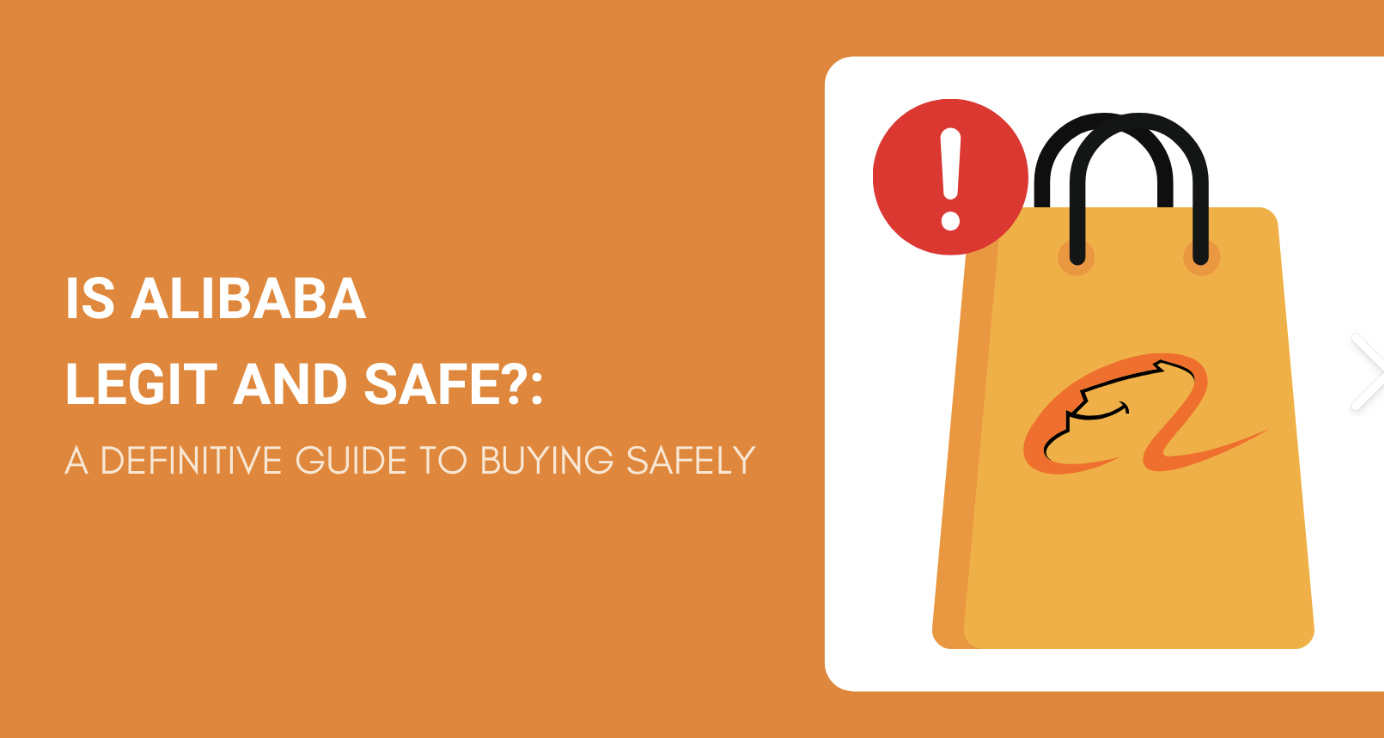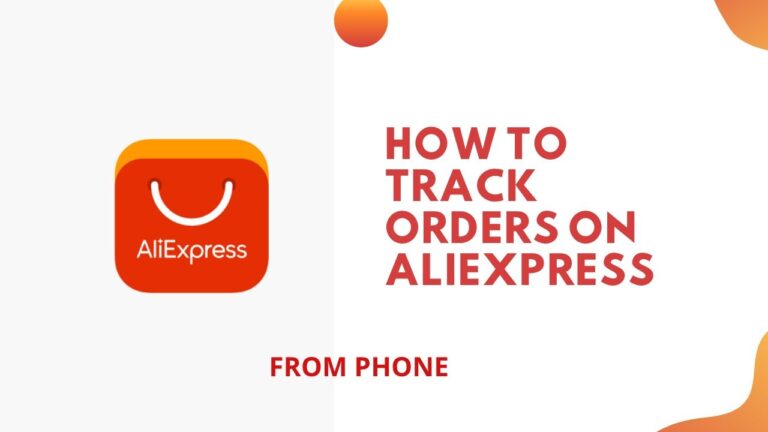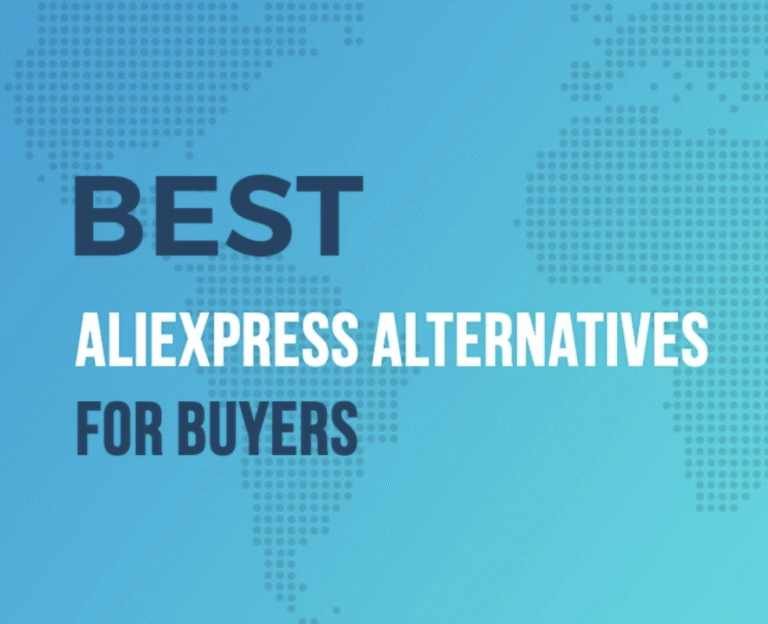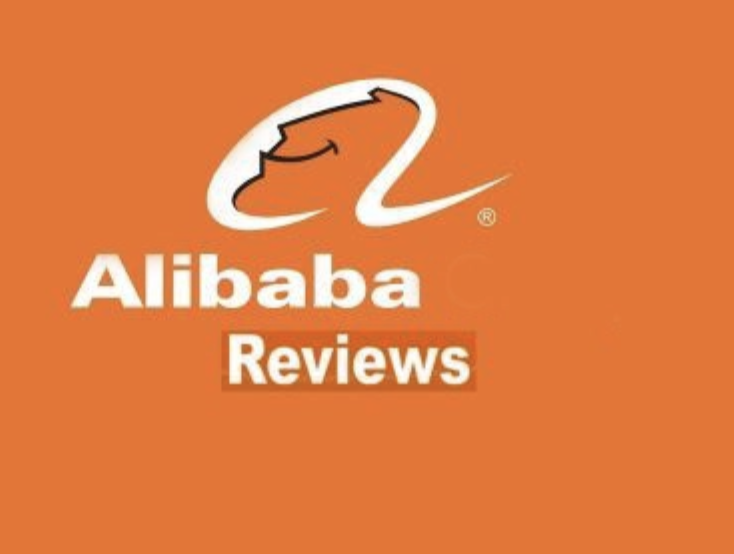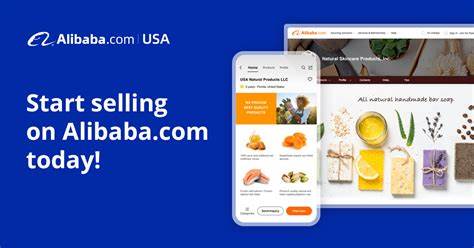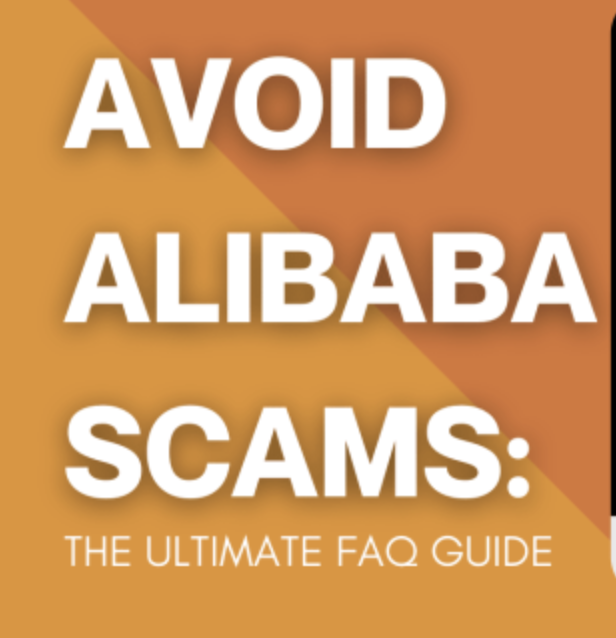Is Alibaba Safe and Legit to Buy From in 2025? Full Buyer’s Guide
Introduction to Alibaba’s Platform
If you’re thinking of sourcing products online, chances are you’ve asked yourself, “Is Alibaba safe and legit to buy from?” With millions of products, thousands of suppliers, and buyers from every corner of the world, Alibaba is a titan in global trade—but it’s also surrounded by myths, fears, and sometimes…scams.
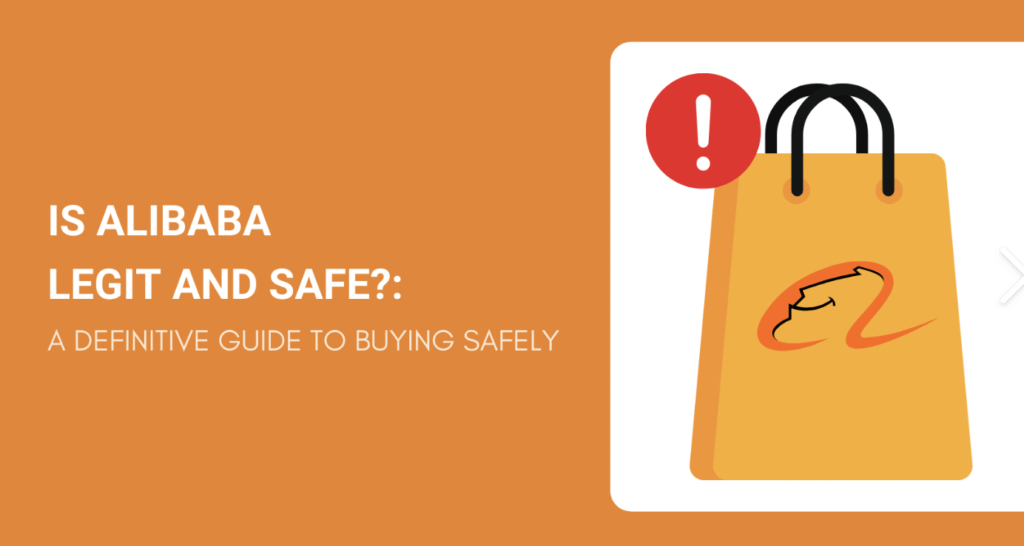
Let’s set the record straight: Alibaba can be safe and legit—if you know how to use it right.
In this guide, we’ll break down how Alibaba works, how to avoid shady sellers, and how to use the platform with confidence and peace of mind.
Table of Contents
What is Alibaba?
Alibaba.com is a business-to-business (B2B) e-commerce platform that connects global buyers with suppliers, mostly from Asia. It’s part of the Alibaba Group, founded in 1999 by Jack Ma. Unlike Amazon or eBay, Alibaba isn’t a store—it’s a massive marketplace of factories and wholesalers offering goods in bulk.
- Sellers are often manufacturers or trading companies
- Orders are typically placed in large quantities
- Customization and private labeling are often available
Why So Many Buyers Ask: Is Alibaba Safe and Legit?
Because Alibaba operates across borders and primarily hosts suppliers from China and developing countries, trust becomes a real concern. Common fears include:
- Getting scammed
- Receiving poor quality products
- Losing money to fraud
But the reality is: millions of transactions happen safely every day on Alibaba. The key is knowing how to spot red flags and protect yourself.
How Alibaba Works for Buyers
B2B Structure vs Consumer Platforms
Alibaba differs from sites like AliExpress or Amazon:
| Feature | Alibaba | AliExpress | Amazon |
|---|---|---|---|
| Target Market | B2B (business buyers) | B2C (individual consumers) | B2C |
| MOQ (Minimum Order Quantity) | Often 50+ units | Usually 1 unit | Usually 1 unit |
| Custom Branding | Available | Rare | Rare |
| Negotiation | Possible with suppliers | Fixed prices | Fixed prices |
Understanding Trade Assurance
Trade Assurance is Alibaba’s built-in buyer protection system. It protects your payment and ensures you either get your order as agreed or your money back.
Key protections include:
- On-time delivery guarantee
- Quality matching the agreement
- Refunds for late or incorrect shipments
Always choose Trade Assurance suppliers—you’ll see a gold shield icon on their listings.
Is Alibaba Safe and Legit for New Buyers?
What Makes Alibaba Trustworthy?
Alibaba implements several systems to build buyer trust:
- Supplier vetting programs like Gold Supplier and Verified Supplier
- Platform-controlled escrow payments
- Supplier rating and review system
- Trade Assurance-backed refunds
These features significantly reduce risk—but only if used correctly.
Common Buyer Fears and Concerns
Here’s what new buyers worry about most:
- Fake products (e.g., counterfeit electronics or luxury items)
- Payment scams
- Poor product quality
- Suppliers disappearing after payment
These risks can be mitigated with smart shopping tactics, which we’ll explore shortly.
Types of Sellers on Alibaba

Understanding the different seller types on Alibaba helps determine whether a supplier is trustworthy. Here are the three most important categories:
Verified Supplier
This badge means that Alibaba has conducted an on-site inspection or third-party verification of the company. Verified suppliers:
- Have verified business licenses
- Display real factory photos and videos
- Often have third-party reports available for download
While this doesn’t guarantee perfection, it’s a strong sign of legitimacy.
Gold Supplier
Gold Supplier status is a paid membership that allows sellers to showcase their products more prominently. While it doesn’t guarantee safety, Gold Suppliers have to:
- Pass initial background checks
- Maintain an active Alibaba storefront
- Offer higher responsiveness
Many reputable manufacturers are Gold Suppliers, but scammers can also buy this status—so use it with other trust signals.
Trade Assurance Supplier
These sellers agree to Alibaba’s buyer protection terms, making it safer to do business with them. Look for the yellow shield icon and ensure that:
- You pay through Alibaba’s secure payment system
- The order terms are clearly stated in the contract
This is your best defense against fraud on Alibaba.
How to Check if a Supplier is Legit
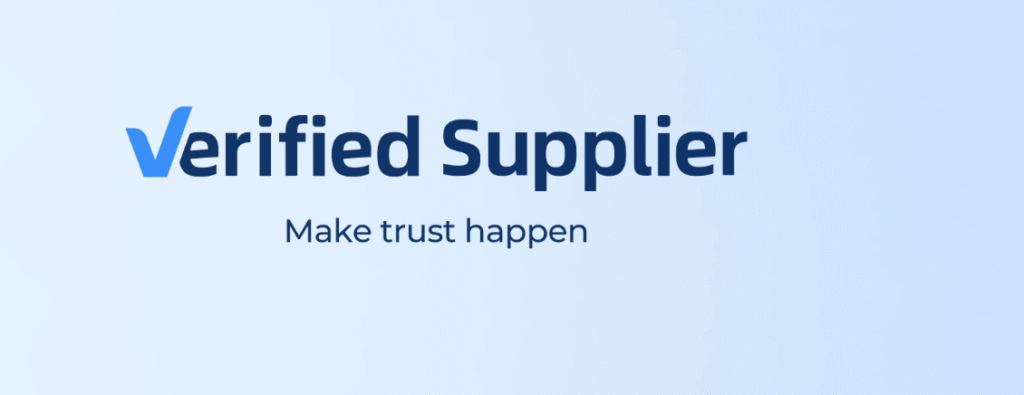
Key Red Flags to Watch Out For
Scammers can be persuasive, but there are warning signs:
- Rock-bottom prices that seem too good to be true
- Inconsistent product photos or stolen images from Google
- Poor grammar and unprofessional communication
- Pressure to pay outside of Alibaba (like via PayPal, Western Union, or bank transfer)
Communication and Verification Tips
Follow these tips to verify your supplier:
- Ask detailed product questions – A legit seller should answer with confidence.
- Request factory photos or videos – Scammers may dodge or send stock images.
- Use Alibaba’s messaging system – Avoid email until a relationship is built.
- Google their company name – Look for external reviews, LinkedIn profiles, or negative news.
Top Tips to Stay Safe on Alibaba
Use Trade Assurance Always
Never skip this feature. It protects your order from:
- Late shipments
- Defective products
- Non-delivery
Only pay through Alibaba’s secure system to stay eligible.
Never Pay Outside the Platform
If a supplier says, “Let’s use PayPal” or “Bank transfer is better,” walk away. These payment methods remove Alibaba’s ability to intervene if something goes wrong.
Request Samples and Do Background Checks
Always order samples first. It’s a small investment that reveals:
- Actual product quality
- Packaging standards
- Response time for fulfillment
Also check:
- Business license
- Customs records (via tools like ImportYeti or Panjiva)
- Social proof (e.g., website, trade shows, client logos)
Real Buyer Stories: Successes and Scams
Positive Buying Experiences
Many small business owners source on Alibaba with great results:
- A U.S. apparel brand owner sourced t-shirts for $2.50 each, branded them, and sold them for $25+
- An Amazon FBA seller worked with a Trade Assurance supplier to create private-label kitchenware—on time, on budget, and without defect
What Can Go Wrong?
It’s not all sunshine:
- A buyer ordered Bluetooth speakers advertised as waterproof, but received faulty units with no recourse due to off-platform payment
- Another purchased “Nike” shoes only to get fake, unusable knockoffs—and couldn’t file a dispute because it violated Alibaba’s counterfeit policy
Is Alibaba Safe for Bulk Orders and Reselling?
Safety Measures for Wholesale Buyers
When placing orders in the thousands, always:
- Create a detailed purchase agreement
- Use Trade Assurance with milestone payments
- Visit the factory or hire an agent for factory inspection
- Request a QC report before final payment
How Dropshippers Use Alibaba Successfully
Many use Alibaba to buy in bulk, then fulfill orders through services like:
- 3PL warehouses (third-party logistics)
- Amazon FBA
- Shopify integration
Ensure you’re not violating any copyrights or trademark laws—especially when dealing with branded or trendy items.
Comparing Alibaba with Other Platforms
Alibaba vs AliExpress
| Feature | Alibaba | AliExpress |
|---|---|---|
| Order Type | Bulk (MOQ required) | Single unit |
| Price per Item | Lower (negotiable) | Higher (fixed) |
| Shipping Time | Slower, but customizable | Faster via ePacket or courier |
| Customization | Available | Rare |
| Buyer Protection | Trade Assurance | AliExpress Buyer Protection |
Alibaba vs Made-in-China
- Both are B2B, but Alibaba has more international sellers
- Made-in-China focuses more on industrial machinery
- Alibaba has a more advanced interface and buyer protections
Alibaba vs DHGate
DHGate offers:
- Smaller MOQs (great for micro-sellers)
- Faster delivery on in-stock goods
- Less supplier variety compared to Alibaba
Alibaba is better for serious sourcing; DHGate is ideal for small-scale buyers.
How to Resolve Disputes on Alibaba
Trade Assurance Dispute Process
If something goes wrong:
- Go to your order details
- Click “Request Refund”
- Submit evidence (photos, chats, contracts)
- Alibaba will mediate and resolve within 15–30 days
The burden of proof lies with the buyer—so document everything.
Alibaba Customer Support Options
- Live Chat: Available during business hours (China time)
- Email: For long-form complaints or escalations
- Resolution Center: For formal disputes
Alibaba also offers on-site inspections, quality checks, and logistics partners—for a fee.
Table: Alibaba Safety Checklist for Buyers
| Step | Why It Matters |
|---|---|
| Choose Verified Suppliers | Reduces scam risk |
| Use Trade Assurance | Ensures refunds for bad orders |
| Avoid Off-Platform Payments | Keeps you protected under Alibaba policies |
| Request Samples | Lets you check quality before big investments |
| Sign Contracts | Sets clear expectations |
| Use Clear Specs and Agreements | Avoids miscommunication with suppliers |
| Document Everything | Helps in case of disputes |
5 Proven Ways To Avoid Scams on alibaba
Alibaba is a trusted platform connecting millions of global buyers and sellers, but it’s not scam-proof. With thousands of suppliers, some illegitimate ones still slip through. If you’re wondering how to avoid scams on Alibaba in 2025, this guide gives you 5 proven strategies that successful buyers use every day.
Whether you’re a first-timer or a growing eCommerce business, avoiding scams can save you thousands—and your reputation. Let’s break it down.
1. Only Deal with Verified and Trade Assurance Suppliers
The most effective way to protect yourself is by working only with verified suppliers. Here’s what to look for:
- ✅ Verified Badge: These suppliers have passed an on-site inspection or audit by Alibaba or a third-party.
- 🛡 Trade Assurance Icon: This means your payment is protected if something goes wrong.
Why it works:
Alibaba holds your payment in escrow. If the product isn’t shipped or isn’t what you ordered, you can get a full or partial refund.
Pro Tip:
Filter your search results to show only Verified and Trade Assurance suppliers.
2. Never Pay Outside Alibaba’s Platform
This is a golden rule: If a supplier asks for payment through PayPal, Western Union, or direct bank transfer—run.
Safe Payment Methods:
- Alibaba secure payment system
- Credit card via Alibaba
- Bank transfer via Alibaba’s escrow
Why it works:
Paying outside Alibaba forfeits your right to dispute the order and opens you up to irreversible fraud.
Red Flag Phrases:
- “Let’s save on fees and use PayPal.”
- “We’ve had issues with Alibaba, please pay directly.”
3. Communicate Smartly and Document Everything
Don’t rely on casual chats or promises. Be clear, professional, and detailed in your communication.
What to Include in Messages:
- Exact product specifications
- Quality requirements
- Packaging and labeling details
- Delivery timelines
Why it works:
In case of a dispute, Alibaba reviews your chat history as part of their decision. If everything is documented clearly, it protects your claim.
Bonus Tip:
Use Alibaba’s messaging system only. Avoid switching to email or WhatsApp until you’ve built trust.
4. Order Samples Before Bulk Purchases
Never make a large purchase without seeing the product first. A sample order helps you verify:
- Product quality
- Packaging quality
- Accuracy of specifications
Why it works:
Scammers can use fake pictures or low-quality substitutes in bulk. Samples expose the real deal.
Pro Tip:
If a supplier refuses to send a sample or overcharges for it, that’s a major red flag.
5. Do a Background Check on the Supplier
Before placing any order, research the supplier like a detective.
What to Look For:
- Business license (ask for a copy)
- Number of years in business
- Export history (using tools like ImportYeti or Panjiva)
- Reviews and feedback from other buyers
Why it works:
Legit suppliers will have a traceable footprint online. Scammers often don’t.
Extra Tip:
Search the supplier’s name on Google and LinkedIn. If nothing shows up or you find scam alerts, walk away.
Bonus: Use Alibaba’s Safety Features
Alibaba provides tools like:
- Supplier assessments
- Factory audit reports
- Secure logistics and insurance
Use them. They’re free and designed to help you shop safely.
Yes, Alibaba is legit and safe, but only if you play smart. Scammers exist, just like on any large marketplace. By using these 5 proven strategies:
- Stick to verified and Trade Assurance suppliers
- Never pay off-platform
- Communicate with documentation
- Test with samples
- Verify the supplier’s background
—you’ll protect your money and build long-term relationships with reliable manufacturers.
Stay sharp, stay safe, and source smart.
Conclusion
So, is Alibaba safe and legit to buy from? Absolutely—if you follow the rules. The platform has evolved into a trusted global sourcing hub, but it still requires due diligence.
Stick with verified, trade-assurance suppliers. Avoid sketchy offers. Order samples. Pay through Alibaba. And always document everything. Do these things, and you’ll unlock one of the most powerful tools for launching or scaling an eCommerce business.
Got a sourcing success or horror story from Alibaba? Drop it in the comments below—we’d love to hear from you!
FAQs About Alibaba is safe and legit
1. Can you get scammed on Alibaba?
Yes, but using Trade Assurance and verified suppliers greatly reduces your risk.
2. What payment method is safest on Alibaba?
Alibaba’s internal payment system (linked to Trade Assurance) is the safest. Avoid wire transfers or PayPal.
3. Is Alibaba safe for beginners?
Yes, if you start small, verify your supplier, and use all safety tools provided.
4. How do I make sure my supplier is real?
Look for verified badges, request factory videos, and Google their company info.
5. What should I do if my order is wrong or delayed?
Open a dispute through Trade Assurance with full documentation. Alibaba will mediate.

